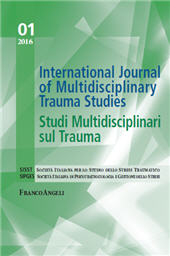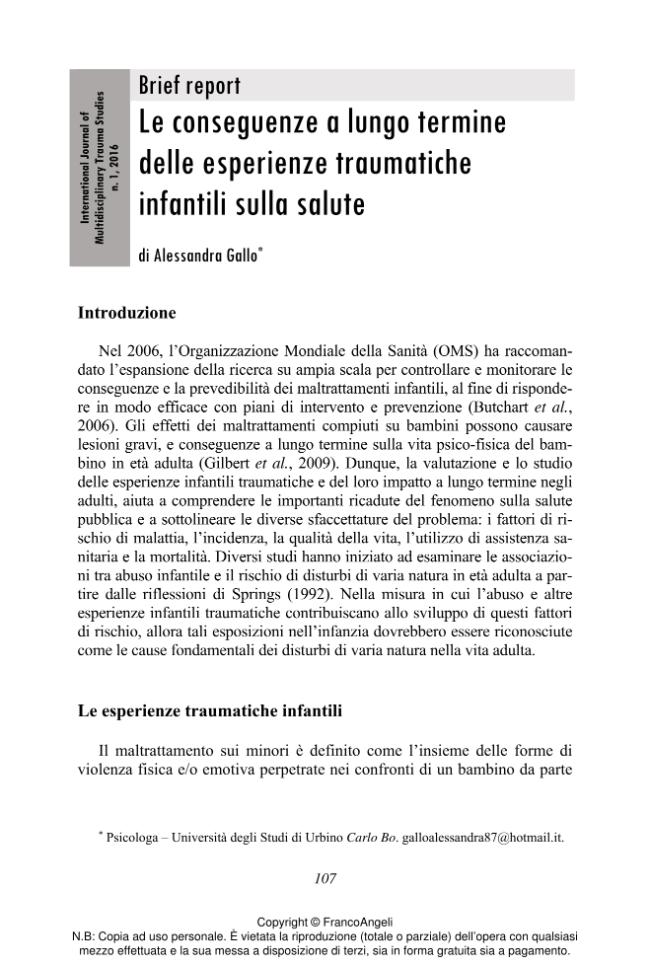Le conseguenze a lungo termine delle esperienze traumatiche infantili sulla salute
107-112 p.
L'importanza degli eventi di vita nei confronti della salute ha sempre avuto riconoscimento in medicina e la scoperta di una possibile influenza di problematiche psicologiche sul sistema immunitario ha evidenziato l'implicazione di quest'ultimo in gran parte delle patologie: dalle malattie infettive alle malattie autoimmuni, ai tumori. La letteratura recente afferma come le relazioni infantili caratterizzate abitualmente da gravi maltrattamenti, abusi o trascuratezza emotiva (neglect), influenzino in maniera stabile lo sviluppo del bambino rendendolo vulnerabile, in età adulta, a una serie di disturbi. A tal proposito, molte ricerche hanno indagato e confermato gli effetti a lungo-termine delle esperienze traumatiche infantili sul possibile sviluppo di sintomi psicosomatici, malattie cardiovascolari, obesità e cancro. Più precisamente, si è osservata una correlazione tra il numero di episodi traumatici e il rischio di sviluppare patologie. I risultati, infatti, suggeriscono che dato l'impatto forte e cumulati
vo di queste esperienze, sullo stato di salute degli adulti, è auspicabile una maggiore attenzione alle strategie di prevenzione primaria, secondaria e terziaria. Tali strategie comprendono la prevenzione del verificarsi di esperienze avverse durante l'infanzia e l'adolescenza, un lavoro efficace sulle situazioni a rischio e infine il miglioramento del carico di malattia.
The importance of life events to health has always been recognized in medicine and the discovery of a possible influence of psychological problems on the immune system has shown the involvement of the latter in most diseases: from infectious diseases to autoimmune diseases, and tumor. Recent literature states such as childhood relationships usually characterized by severe maltreatment, abuse or emotional neglect influence on a stable development of the child making it vulnerable to a variety of disorders in adulthood. In this regard, many studies have investigated and confirmed the long-term effects of traumatic childhood experiences on the possible development of psychosomatic symptoms, cardiovascular disease, obesity and cancer. In particular, it as been observed a correlation between the number of traumatic events and the risk of developing diseases. The results, suggest that given the strong and cumulative impact of these experiences on the health of adults is desirable to have a greater focus on primary.
prevention strategies, secondary and tertiary. These strategies include the prevention of the occurrence of adverse childhood experiences during childhood and adolescence, effective work on risk situations and finally the improvement of the disease burden.
-
Articles from the same issue (available individually)
-
Information
ISSN: 2531-5242
DISCIPLINES
KEYWORDS
- Neglect, malattie psicosomatiche, prevenzione
- Neglect, psychosomatic illness, prevention



